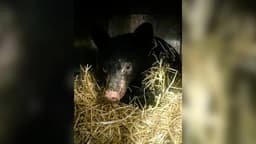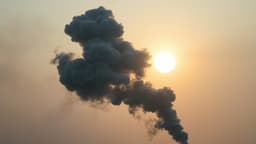Home / Environment / Drought Devastates Northeastern B.C. Farms, Residents Brace for Water Crisis
Drought Devastates Northeastern B.C. Farms, Residents Brace for Water Crisis
2 Nov, 2025
Summary
- Haley Bassett's well runs dry, filled with black sand, as drought grips region
- B.C. industrial water rates lowest in Canada, sparking calls for higher pricing
- Nearby communities declare emergencies, seek new water supplies
As of November 2025, the northeastern region of British Columbia is facing a severe water crisis. Haley Bassett, a local farmer, has been struggling with her family's well running dry several times over the past five years. When she turns on the taps, nothing comes out, and the well's water filter is clogged with black sand.
This is just one of the many changes Bassett has noticed around her property, which her grandparents began farming in the 1960s. The region is experiencing deep-seated drought, which has dried up rivers, stressed reservoirs, and forced local governments to restrict water use. Crop yields are thinning, trees are dying prematurely, and weeds have exploded. Bassett worries about how much longer her well will hold out and what's being done to protect the water that feeds it.
Advocacy groups, such as Stand.earth, have called on the provincial government to increase industrial water rates, which at $2.25 per million litres, are the lowest in Canada. They argue that raising rates in line with other provinces could generate an extra $100 million annually, which could be reinvested in watershed protection. However, the government has defended its policies, stating that the province's water management framework is "the most rigorous" in North America.
The situation has become so dire that nearby communities, like Dawson Creek, have declared a state of emergency and are seeking to fast-track a $100-million pipeline and new water supply. Bassett believes that industry should be paying more for water, especially as local communities face shortages. She feels that the amount of money extracted from the region is not being reinvested, calling the situation "exploitative."



